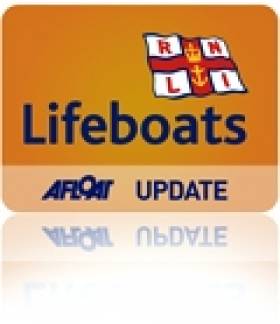Displaying items by tag: Mora Edith Macdonald
Scottish Lifeboat Launched for Emergency Beacon Alarm
Scotland's Oban RNLI lifeboat, the Mora Edith Macdonald, was called out at twenty past midnight last night in response to an EPIRB alarm.
The EPIRB, Emergency Position Indicating Radio Beacon, was swiftly traced by the lifeboat direction finding equipment to an un-attended 45ft ketch on a mooring at Oban Marina.
The lifeboat crew, accompanied by a police officer, cut the padlock to gain access to the vessel and found the offending beacon in a locker in the forward cabin.
It proved impossible to switch off the device due to a faulty switch and the crew were forced to dismantle the unit in order to disconnect the battery.
The lifeboat was re-fuelled and ready for service at two minutes to one in the morning.
In the case of 406 MHz beacons which transmit digital signals, the beacons can be uniquely identified almost instantly and furthermore, a GPS or GLONASS position can be encoded into the signal, which provides instantaneous identification of the registered user and its location.
Frequently, by using the initial position provided via the satellite system, SAR aircraft and ground search parties can home in on the distress signals from the beacons and come to the aid of the concerned boat, aircraft, or people.
Related Safety posts
RNLI Lifeboats in Ireland
Safety News
Rescue News from RNLI Lifeboats in Ireland
Coast Guard News from Ireland
Water Safety News from Ireland
Marine Casualty Investigation Board News
Marine Warnings
























































